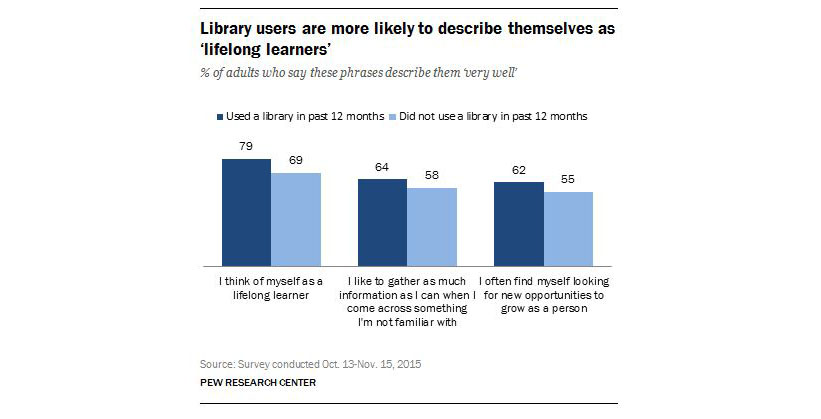
Library visits help encourage learning in children, but what about in adults?
A Pew study has found that adults who use libraries are more likely to consider themselves to be “lifelong learners” – that is, actively pursuing learning opportunities and learning to embrace new technologies. These results came out of a larger report examining general lifelong learning habits among adults.
When presented with the statement “I think of myself as a lifelong learner,” a large majority (79%) of adults who had visited a library or bookmobile in that past year indicated that the statement describes them “very well.” The number of library users who consider themselves lifelong learners rounds out to nearly everyone in this group (97%) after adding in the 18% of respondents who thought the statement described them “somewhat well.” Comparatively, about 7 in 10 (69%) of those who have not used a library in the past year described themselves as lifelong learners.
This group of lifelong learners engages in learning pursuits at the library at a rate of about 1 in 5 (23%). Those most likely to use library resources to pursue their interests include women (27% of this group), those ages 65 and older (30% of this group), and those living in households earning less than $50,000 (29% of this group).
Library users are also more likely than non-library users to adopt and use technology to aid in personal learning pursuits. More than 9 in 10 (93%) library users regularly access the internet either from home or the library, and about three-quarters (74%) of these adults report using social media.
For more information, you can find the full report here. You can also check out a previous LRS Number post about general trends in lifelong learning habits.
Note: This post is part of our series, “The LRS Number.” In this series, we highlight statistics that help tell the story of the 21st-century library.